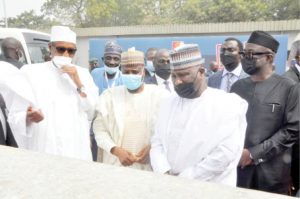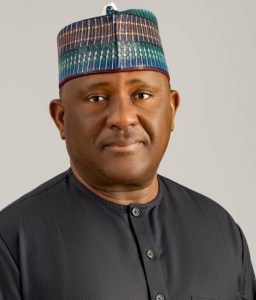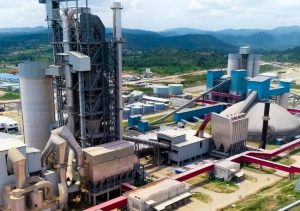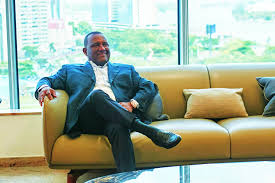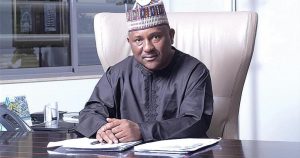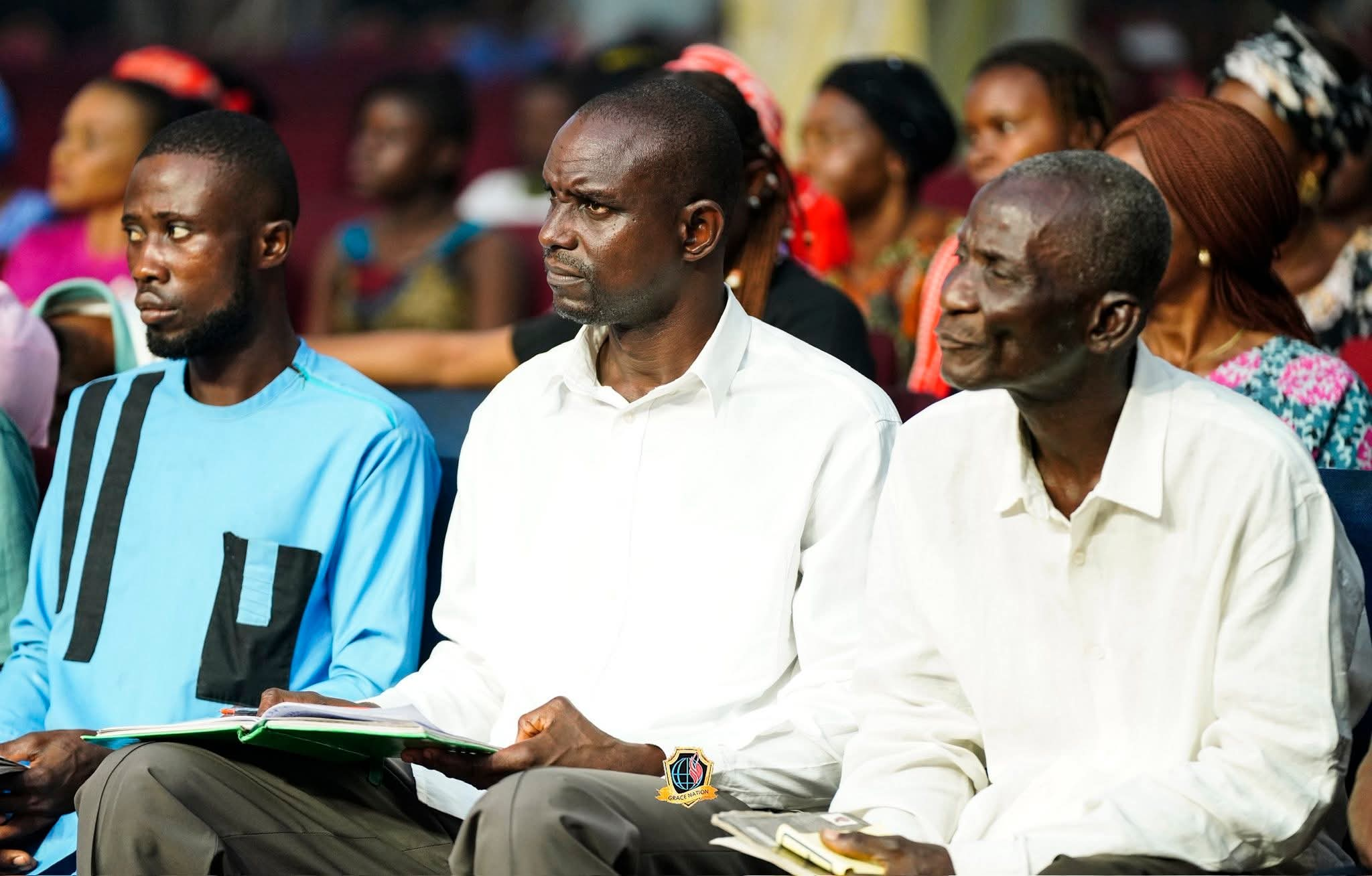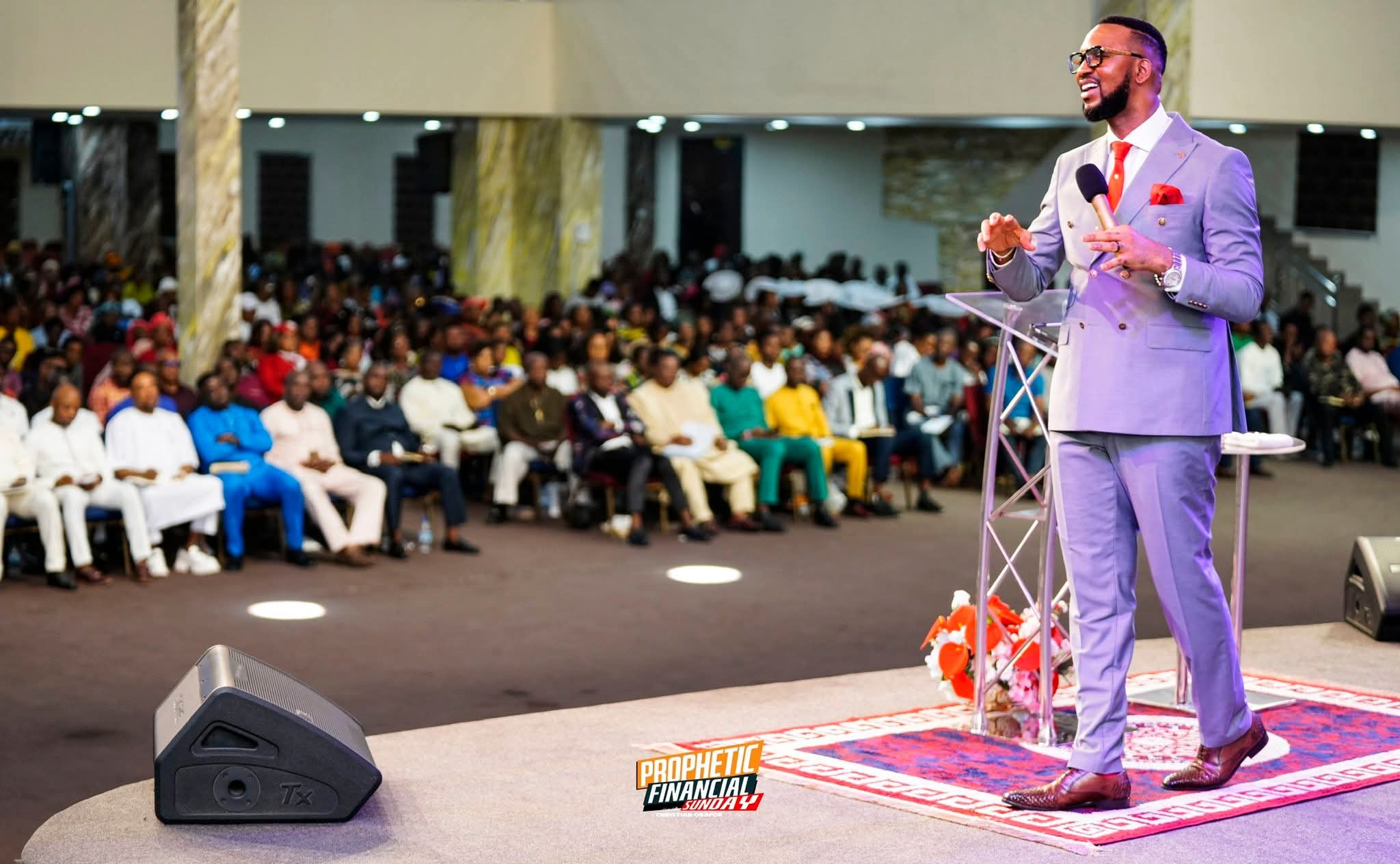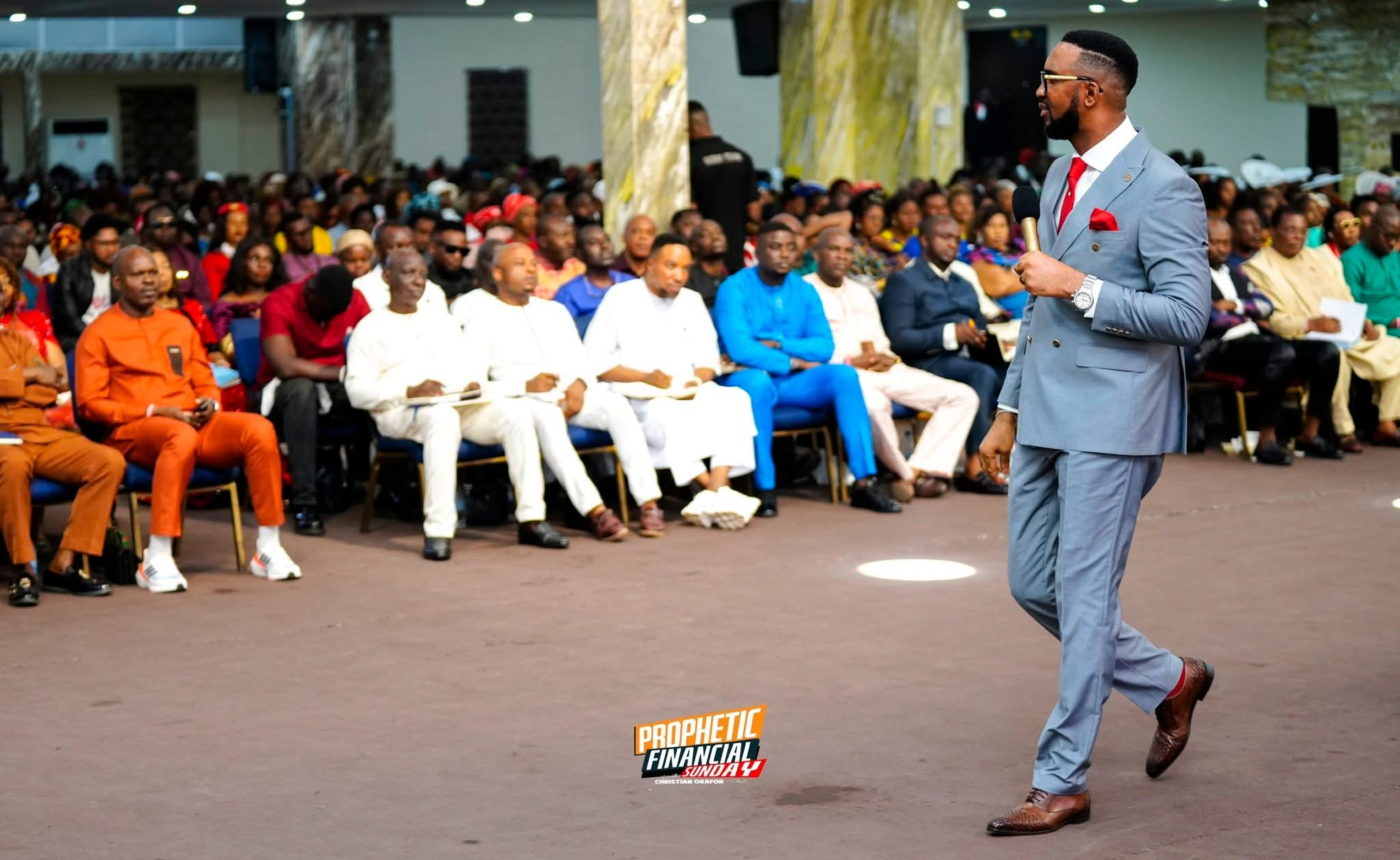celebrity radar - gossips
HOW BUA CHAIRMAN, ABDUL SAMAD RABIU BECAME THE BIGGEST EMPLOYER OF LABOUR IN NORTHWEST NIGERIA
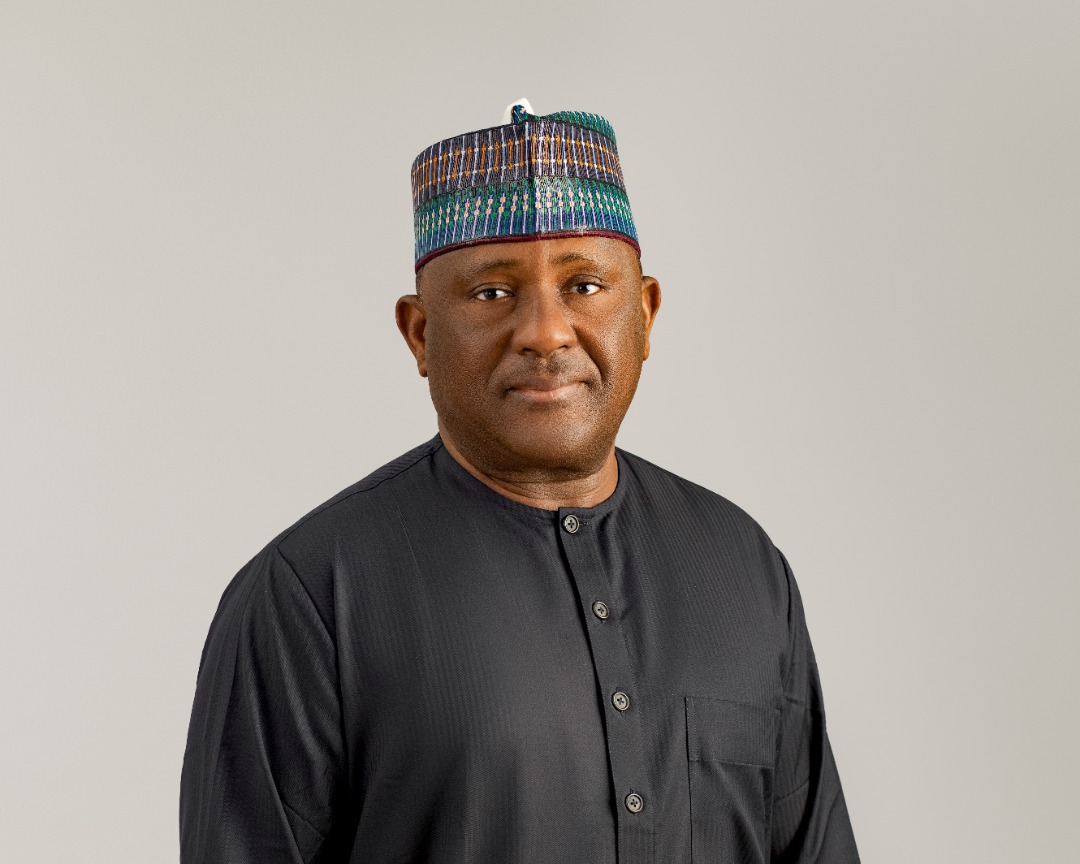
HOW BUA CHAIRMAN, ABDUL SAMAD RABIU BECAME THE BIGGEST EMPLOYER OF LABOUR IN NORTHWEST NIGERIA By Eric Elezuo
Only a few days ago, he was adjudged Nigeria’s second richest man, a feat he achieved by putting the interest of Nigerians, especially his Northeast region into selfless consideration. He is the Chairman, Chief Executive Officer, BUA Group, Alhaji Abdulsamad Rabiu.
Describing his efficiency, notable Nigerians, who attended the opening of the 3 million metric tonnes per annum BUA Cement Sokoto Line 4 Factory or 3MPTA BUA cement, line 4 cement plant, in Sokoto, took turns to remark the importance of the industrialist, who on many occasions, has made the Forbes list of billionaires in the world, following his inclination to creating millionaires through the provision of veritable employment opportunities, with special focus on those of his northwest origin. Today, he is the fifth richest man in Africa, and the second richest man in Nigeria.
The BUA Cement Sokoto Line 4 was built to the following specifications: three million metric tonnes per annum capacity; 6,000 TPD ILC with the highest energy efficiency and latest pollution abating equipment; 48 MW dual fuel power Plant and so on. The Line 5 is already in the works and should be ready in the first quarter of 2023.
With an array of political, financial and entrepreneurial presence at the occasion, the person of Alhaji Samad and the importance of his BUA Group were brought to the fore and celebrated. Leading the fray of eulogies, Nigeria’s president, Muhammadu Buhari, could not hide his joy at the impact of the entrepreneurial giant, noting that he has remained the largest employer of labour in the northwest region of Nigeria.
He said: “I am pleased that through these investments, BUA Cement has created employment opportunities for our citizens. Today, BUA is the largest employer of labour in the North-West region.
“I always remind Nigerians that every region, indeed every state, in Nigeria sits on huge reserves of resources. For example, in this area, Kebbi, Sokoto and Zamfara can boast of rice production, gold and other precious metals development and of course, heavy industries like cement manufacturing.
”As a government, we introduced policies and mechanisms to support such investments in a legal, ethical and inclusive manner.
”For example, we have the National Food Security Council on Food Security Matters and the Presidential Artisanal Gold Mining Development Initiative to develop local artisanal gold mining and ensure health and safety of mining workers and protect the environment.
”We remain prepared to support serious investors to set up businesses that will take advantage of these opportunities through value addition so as to take advantage of the huge market here, as well as in the greater African region and the world at large.”
Recalling how he, as Head of State in 1985, was at the same location to commission the 2nd line of the facility, the president expressed quite a feeling of nostalgia.
”Today, almost 37 years later, to commission the fourth line is a very special day for me personally.
”As you all know, one of the key economic pillars of our administration has been to create an enabling environment for businesses to thrive. This is necessary for job creation and indeed, for our economy and national security.
”In the past few weeks, I visited Ogun and Kaduna states where I observed many private sector investments in action. And today, I am here in Sokoto to commission this multi-billion Naira project.
”It is therefore very clear for all to see that our policies are working. Progress is gradually being made in all parts of the country,” he said.
In his speech as well, the Governor of the Central Bank of Nigeria, Mr. Godwin Emefiele, lauded the seasoned entrepreneur, and appealed to manufacturers of building materials in the country to bring down cost of building materials to affordable price for ordinary citizens.
Speaking about the high cost of building materials in the country, he said, “let me use this opportunity to appeal to our manufacturers to please take urgent actions in bringing down price of building materials in Nigeria.
“Indeed, there have been call by construction companies urging the cement and steel manufacturers to do something about the skyrocket price of these two essential items in the manufacturing sector.
“These sector is one of the major sectors of our economy that contribute to the creation of employment and produce for both domestic and export use. Please pay more attention at satisfying our domestic needs, so that prices can come down,” Emefiele said.
He assured that the Central Bank of Nigeria on its part will continue to provide needed support in the provision of need cash, plants and equipment, needed to improve the capacity of the cement production in the country
He said the Central Bank of Nigeria is ready to assist existing investors, both the current and prospective manufacturers that the bank is ready to continue to collaborate with them in enabling the development of viable manufacturing sector in the country.
In his response, Abdul Samad Rabiu commended the President for creating the enabling environment for businesses to thrive, and acknowledged the support of the Central Bank of Nigeria (CBN) and its Governor in setting up the gigantic project.
He noted that, ”so far, we have invested over a billion dollars in the past four years and we urge the CBN to continue to support industries like ours that use locally sourced raw materials to add value.”
He pledged that BUA would continue to invest more in the cement industry until Nigeria is self-sufficient and the commodity is made available, accessible, and affordable for all Nigerians.
”In the past 6 years, we have completed 4 plants – two in Obu, Edo State and two in Sokoto (of which this Sokoto line 4 is the fourth) with BUA’s total production capacity now standing at 11.5 million tonnes with the completion of this plant.
”Next year, we intend to complete the construction of two new plants of 3 million metric tonnes each for which construction is ongoing – one in Edo and the other, here in Sokoto.”
The Chairman of BUA said he looked forward to President Buhari commissioning these plants next year which will bring total production capacity to 17.5 million metric tonnes.
RABIU’S FULL SPEECH
Your Excellency, The President of the Federal Republic of Nigeria, President Muhammadu Buhari, GCFR Your Excellency, the Governor of Sokoto State & distinguished guests.
Your Excellency Sir, may I seek your permission to please stand on the already established protocols? Thank you.
I would like to start by expressing my most profound appreciation to Your Excellency, Mr President, for gracing today’s commissioning despite your busy schedule. Your presence here today, sir, is another affirmation of your unwavering commitment to Nigerian businesses and your vision to industrializing Nigeria.
I also welcome You and everyone else to the commissioning of the BUA Cement Sokoto Line 4 at this historic location – a location steeped in history, and one where Mr. President commissioned the second line in 1985 when he was Head of State.
President, a little over four and half years ago, shortly after the commissioning of BUA’s first greenfield cement complex – the 3million metric tonnes per annum BUA Cement Obu Line 1 by His Excellency, the Vice President, we continued our audacious yet structured expansion programme to meet the ever-growing demand for cement in Nigeria with regional exports also in focus.
We had a vision to support your government’s infrastructure agenda by ensuring we use locally available raw materials to produce cement here in Nigeria.
In the past 6 years, we have completed 4 plants – two in Obu, Edo State and two in Sokoto (of which this sokoto line 4 is the fourth) with BUA’s total production capacity now standing at 11million tonnes with the completion of this plant.
Next year, we intend to complete the construction of two new plants of 3 million metric tonnes each for which construction is ongoing – one in Edo and the other here in Sokoto. We expect these plants to be completed next year which will bring our total production capacity to 17million metric tonnes. We look forward to Your Excellency coming to commission them by the first quarter of 2023 ISA.
President, distinguished guests, BUA will continue to invest more in the cement industry until Nigeria is self-sufficient and cement is made available, accessible, and affordable for all Nigerians.
President, there are many reasons one can attribute to the important nature of this plant. The attendant effect of these investments in new factories go beyond the community and the state. It extends to the region and the entire country.
From a job creation and economic standpoint, the Sokoto plant continues to be the largest private sector employer of labour in the North-Western part of Nigeria. Also, by adding value to resources mined in Nigeria, Nigeria is being saved billions of US dollars in foreign exchange that would have been spent on importation, whilst also ensuring product availability. In fact, 95% of all the raw materials used in our cement manufacturing process are sourced locally.
In addition to this, and our investment in social impact and CSR programmes for the community and sokoto state at all levels, we are also committed to environmental sustainability. We have diversified our energy sources by introducing greener alternatives – in this case, LNG – to power the kiln and 48 megawatts power plant. Our power plants are now running on 100% LNG leading to reduced carbon emissions. This is the first of its kind at any cement factory in Nigeria.
What this means also, is that as soon as the AKK gas project comes on stream, we are ready to be one of the first off-takers to satisfy our energy needs. This will also encourage further industrialization within the region, open new industries and ensure greater development and prosperity for this region and the nation in general.
Mr President Sir, all of this will not have been possible without your support and commitment to the development of the Nigerian economy.
As a Proudly Nigerian Company, we will do our best to continue to support those efforts.
The support of the Central Bank of Nigeria and its Governor in setting up this gigantic project is also worthy of mention. So far, we have invested over a billion dollars in the past four years and we urge the CBN to continue to support industries like ours that use locally sourced raw materials to add value because as mentioned earlier, these industries potentially save the country billions of dollars yearly and also ensure products are readily available across the length and breadth of the country.
I must also thank specifically, His Excellency, the Governor of Sokoto State – Rt Honourable Aminu Tambuwal who has never wavered in his support in ensuring an enabling environment for BUA Cement to thrive. Thank you, Your Excellency.
In the same vein, our partnership with our host community, Kalambaina Community, has been mutually beneficial. The people of Kalambaina have been so cooperative, peaceful, and supporting of the business and our activities. This has ensured a mostly hitch-free operation in this area for more than five decades and has given us the confidence to invest more whilst adding to the socio-economic development of the area through various investments in infrastructure, education, healthcare, jobs, and other social impact areas.
CLOSING
Distinguished guests, I would like to restate that BUA Cement remains fully committed in making cement more available, affordable, and accessible using raw materials available locally. This is important for housing and infrastructure development as well as national development and we will keep doing our own part to actualize this goal.
Finally, I want to thank Mr President for his commitment to the growth and development of manufacturing, mining, and other key industries in this country.
Businesses can only thrive if the enabling environment is right and is supported by the right policies.
We are aware of your government’s efforts, but we know that government alone cannot do it without the positive collaboration and support of the private sector. This is where we come in and we will continue to support national and economic development as we have always done.
Once again, I welcome all our distinguished guests to the commissioning of the 3 million metric tonnes BUA Cement Sokoto Line 4.
Thank you for listening.
Among a-list personalities that graced the event together with the host governor, Alhaji Aminu Tambuwal, were His Imperial Majesty The Ooni of Ife Oba Adeyeye Enitan Ogunwusi Ojaja II; The Sultan of Sokoto, His Eminence Muhammadu Sa’adu Abubakar; The Emir of Kano, His Royal Highness, Alhaji Aminu Ado Bayero; The Emir of Bichi, His Royal Highness Alhaji Nasiru Ado Bayero, The Governor of the Central Bank of Nigeria, Godwin Emefiele; Mr Olumide Akpata, President of the Nigeria Bar Association; Mr Sijibomi Ogundele of Sujimoto; Mr Segun Awolowo, former helmsman at the Nigeria Export Promotion Council (NEPC), Dr Taiwo Afolabi of the SIFAX Group; Mr Jubril Adewale Tinubu, the Group CEO of OANDO PLC; Chief Sam Iwuajoku, the founder and Chairman of Quits Aviation; Otunba Niyi Adebayo, Minister of Industry, Trade and Investment; Mr Tayo Ayeni, Chairman of Skymit Motors, Senator Mohammed Daggash; Dr Aliyu Modibbo Umar, former Minister of Commerce and of the FCT; Balogun Akin Osuntokun.
Other dignitaries at the events includes all the Governors of Kebbi, Kano and Kwara States as well as the deputy governor of Jigawa States and his counterpart in Sokoto State.
THE ABDULSAMAD RABIU WE KNOW
As one of Africa’s biggest philanthropist, Rabiu has graciously used his BUA Foundation and the phenomenal Abdul Samad Rabiu Africa Initiative to not only affect lives, but ensured that the people of world, especially his native Nigeria, live in defined comfort.
Born August 4, 1960, in Kano, to one of Nigeria’s foremost industrialists in the 1970s and 1980s, Khalifah Isyaku Rabiu, Abdul Samad Isyaku Rabiu CON is a perfect combination of many things in one.
It was in his native Kano that he kick started his academic pursuit, carousing through elementary education with ease as a gifted child, and obtained his First School Leaving Certificate. He was later admitted into the Federal Government College, Kano, where he had his secondary education, and gradually with honours.
With a combination of fate, brilliance and determination, Abdulsamad was catapulted to Capital University in Columbus, Ohio, where he studiously studied Economics, and acquired his tertiary education before returning to Nigeria, all before his 24th birthday, to oversee his family business. He was that much sort after, and highly brilliant, and considered capable of holding fort for his father, who was being detained by the administration of General Muhammadu Buhari over matters concerning import duties.
In 1988, just after learning the ropes of entrepreneurial excellence, Abdul Samad Rabiu established BUA International Limited, for the sole purpose of commodity trading. The company followed after the footsteps of his father, and imported rice, edible oil, flour, and iron and steel.
In 1990, having exhibited the character worthy of a world class entrepreneur, and the ability to execute classical projects, Rabiu’s BUA was invited by the government, which owned Delta Steel Company to supply its raw materials in exchange for finished products. This provided a much-needed leverage for the young company, and consequently expanded further into steel, producing billets, importing iron ore, and constructing multiple rolling mills in Nigeria.
Rabiu’s dexterity showed further a few years later, when the company acquired Nigerian Oil Mills Limited, the largest edible oil processing company in Nigeria, and there erupted the company’s and BUA’s influence and care over the people in the provision of affordable edible oil. His passion to see people excel in comfort has continued to make him churn out one great tiding after another, and endearing him in the hearts of the generality of the public.
A man with a vision for tomorrow, Rabiu, in 2005, started two flour-milling plants, in Lagos and in Kano, and by 2008, had broken an eight-year monopoly in the Nigerian sugar industry by commissioning the second-largest sugar refinery in sub-Saharan Africa. This was a feat only a bravest of hearts could wroth. As a result, in 2009 the company went on to acquire a controlling stake in a publicly-listed Cement Company in Northern Nigeria and began to construct a $900 million cement plant in Edo State, completing it in early 2015. Rabiu’s passion for expansion is unequalled.
BUA Group has since concentrated and excelled in manufacturing, infrastructure and agriculture and producing a revenue in excess of $2.5 billion. This is in addition to being the chairman of the Bank of Industry (BOI).
The Group, in 2019, announced plans to merge its privately owned Obu Cement with the publicly traded Cement Company of Northern Nigeria Plc (CCNN), to create Nigeria’s second largest cement producer thereby consolidating the grip on the cement market and breaking its monopolistic status.
It is worthy of note that Cement Company of Northern Nigeria PLC in which Rabiu owned more than 97% was producing two million metric tons of cement per annum (Mtpa) while Obu Cement has an annual production capacity of 6Mtpa. The move is in line with the company’s resolve to deepen the Nigerian capital markets and enhance the growth of the cement industry.
Rabiu’s expansion strides cannot be complete without a mention of his extraordinary philanthropic gestures.
In April 2020, he made a whopping donation towards the fight to contain the spread of the Coronavirus pandemic presently ravaging the country.
In a letter dated April 24, 2020, he personally signed and addressed to The Presidential Task Force on COVID-19, the billionaire businessman, congratulated the duo of the Task Force and the Nigeria Centre for Disease Control (NCDC) for doing a good job while observing that much as so much has been done, there was still need to do a lot more, as the disease continued to make inroads into many parts of the country, especially Lagos and Kano states.
“I view with deep concern, the increased rate of spread of the Coronavirus, especially in Kano and Lagos states despite concerted collective efforts to curb the spread and effects of the virus in Nigeria,” he said.
With sincere reference to ‘what is going on, especially in Kano at the moment’ the philanthropist, who had earlier donated N1 billion to the private sector led CACOVID and other states, announced the release of another N3.3 billion ‘grant to the working group made up of the Presidential Task Force, NCDC and other stakeholders in equipping two existing permanent facilities in Kano and Lagos states’.
He said: “To this end, I am immediately committing and making available – through the Bua Foundation two grants of Two Billion Naira for the Kano-based intervention and One Billion Naira for Lagos State being the two epicentres of this virus in Nigeria.”
Rabiu also informed that “a sum of N300 million will also be made available immediately in cash to the Presidential Task Force to assist with logistical and operational activities of the taskforce. This grant is in addition to BUA’s earlier contributions to the private sector led CA-COVID coalition and donations to other states.”
Giving directive on how the funds will be spent, the BUA Foundation Chairman hinted that the “working Group will be expected to use resources at its disposal to ensure these facilities – to be determined by the Working Group – are fully equipped in the shortest possible time.”
He further revealed his trust in the working group to judiciously use the grant for the purposes meant, saying “I believe this will effectively help to expand the scope of interventions, ongoing research as well support already stretched medical cities dedicated to this fight.”
Rabiu’s BUA had in March through a confirmed funds transfer to the COVID-19 relief fund account with the Central Bank of Nigeria redeemed its pledge of N1billion ($2.6m) to the fight against COVID-19. In addition, the company also announced another donation of N300 million to Sokoto, Edo and Ogun States to assist in galvanizing a coordinated response and adequate preparedness in the fight against the COVID-19 pandemic in this states. The donations to Sokoto and Edo States were on behalf of its Cement subsidiary, BUA Cement which has its major operations in those states whilst Ogun was also selected as a beneficiary due to its proximity to Lagos which had been the epicenter of the virus in Nigeria.
In total, Rabiu and his group donated N4.6 billion to the fight against the dreaded pandemic in a addition to other incentives, making them the single highest donor as at date.
In 2021, Rabiu’s focus bestowed on him the grace of becoming the biggest gainer in shares. According to Forbes, which listed the billionaire among the four top billionaires in Africa for the year, “shares of his BUA Cement PLC, which listed on the Nigeria Stock Exchange in January 2020, doubled in value in the past year. That pushed Rabiu’s fortune up by an extraordinary 77%, to $5.5 billion. One thing to note: Rabiu and his son together own about 97% of the company, giving the company a tiny public float. The Nigerian Stock Exchange requires that either 20% or more of a company’s shares to be floated to the public, or that the floated shares are worth at least 20 billion naira — about $50 million — a paltry sum, to be sure. A spokesman for the Nigerian Stock Exchange told Forbes that BUA Cement meets the second requirement. (Forbes discounts the value of stakes when the public float of a company is less than 5%.)”
Rabiu has constantly used his BUA Foundation for his philanthropic activities. Some of them include the construction of a 7,000-square-meter paediatric ward at the Aminu Kano Teaching Hospital and the construction of the Centre for Islamic Studies at Bayero University Kano amongst several others.
He is known to have signed several major deals with French companies in recent times, from Axens as technical partner to his new refinery, to a 300tn plasterboard factory deal with French construction giant St Gobain. He followed it up with listing a segment of his business empire on the Lagos Stock Exchange.
In June 2021 therefore, when French President Emmanuel Macron inaugurated the France-Nigeria Business Council, a private sector initiative to enhance business relations between the two countries, Abdul Samad Rabiu, was appointed its inaugural President. He had earlier been appointed Chairman of the France Nigeria Investment Club. These appointments drew encomiums from high places including President Muhammadu Buhari.
Practically every woman’s dream, Abdul Samad is married to his beautiful wife, and they are blessed with children, among whom are Isyaku Rabiu, Junaid Rabiu, Rukkayah Rania Rabiu and Khadijah Rabiu. He has 42 siblings including Nafiu Rabiu and Rabiu Rabiu, the chairman of IRS Airlines.
Samad’s fortunes improved as follows giving him the leverage to start the year 2022 on a high note:
BUA Foods’ shares jumped more than 10% from N40 ($0.0968) to N44 ($0.1065) as of press time, Jan. 6.
The company’s market capitalisation increased to N792 billion ($1.92 billion), as Rabiu’s fortune also increased from $5.3 billion to $7.2 billion.
He added a whopping $1.9 billion to his networth, bringing his total fortune to $7.2 billion.
Rabiu’s abilities are compared only with the best. He is a force to reckon with in the field of enterprise and human capacity building. He is quite a gift to Nigeria, and the world.
A hearty congratulations to you sir as you continue to take the entrepreneurial world by storm, and continue to be shinning light for the people of Nigeria, especially the northwest.
from thebossnewspaper.com
celebrity radar - gossips
E‑Money’s Grand Gesture: A Closer Look at the SUV Gift to Chinedu “Aki” Ikedieze

E‑Money’s Grand Gesture: A Closer Look at the SUV Gift to Chinedu “Aki” Ikedieze
By George Omagbemi Sylvester | Published by SaharaWeeklyNG
“Public Generosity, Celebrity Loyalty and the Symbolism of Wealth in Nigeria’s Entertainment Elite.”
On Tuesday, February 17, 2026, Nigerian billionaire and entrepreneur Emeka Okonkwo, widely known as E‑Money, once again captured national attention with a lavish and highly publicised act of generosity, gifting a brand‑new 2024/2025 Ford SUV to veteran Nollywood actor Chinedu Ikedieze, affectionately called Aki, during his high‑profile birthday celebration.
The event, held in Lagos amidst a constellation of entertainers, business figures and socialites, was itself part of an annual tradition in which E‑Money marks his birthday (on February 18) with large‑scale giveaways and spectacular shows of material philanthropy. This year, he announced the gift of over 30 cars to friends, staff and family, a gesture that quickly went viral as videos and images circulated across social media platforms.
In the case of Ikedieze, E‑Money’s gift appeared to be deeply personal. During the festivities, E‑Money stood beside his elder brother, Grammy‑nominated musician KCee and recounted how Ikedieze stood by him at his 2007 wedding. The billionaire explained that the SUV was a “token of appreciation” for the enduring support the actor had shown over the years which is a narrative that blends friendship with public celebration.
Ikedieze, a Nollywood staple with a career spanning more than two decades and over 150 film credits, including the iconic Aki na Ukwa franchise, visibly reacted with humble surprise as he received the vehicle, bowing his head in respect and gratitude. The actor later shared the moment on his Instagram account with a caption celebrating the gift, further fuelling online engagement around the event.
Beyond the spectacle, this incident underscores evolving dynamics in Nigerian celebrity culture and the intersection of wealth, influence and reciprocity. Sociologist Dr. Chinedum Uche of the University of Lagos, speaking on the broader implications of such high‑profile gifts, notes: “Philanthropy that is highly publicised can reinforce social bonds, but it also reflects a culture where generosity is intertwined with reputation economy; where giving becomes as much a social signal as it is an act of kindness.” The quote highlights how public acts of wealth transfer among elites serve layered social functions that extend beyond pure altruism.
Critics of such displays argue that ostentatious giveaways, particularly in a country with stark economic disparities, risk amplifying social envy and exacerbating perceptions of inequality. Economist Dr. Ifunanya Nwosu from the Lagos Business School observes: “In societies marked by economic stratification, celebrity largesse may inspire admiration, but it can also inadvertently highlight structural inequities; prompting questions about systemic investment in public welfare versus individual generosity.”
Still, supporters maintain that E‑Money’s annual tradition (which has in past years included cash gifts to his brother KCee, comedians and even domestic staff) reflects genuine gratitude and a commitment to uplifting his immediate circle, albeit within the private sphere.
For Ikedieze, the SUV stands both as a heartfelt gesture from a longtime friend and a public affirmation of their enduring relationship. As the video of the moment continues to circulate, the broader narrative has ignited discussions about the role of private wealth in public life, celebrity culture and how acts of giving are interpreted in contemporary Nigerian society.
In a landscape where influence and generosity often play out in equal measure on public stages, E‑Money’s gift to Aki is more than a headline, it is a flashpoint in ongoing debates about wealth, friendship and visibility in Nigeria’s entertainment and entrepreneurial ecosystem.
celebrity radar - gossips
Spiritual Reality: Wicked People Are Possessed by Wicked Spirits — Dr. Christian Okafor
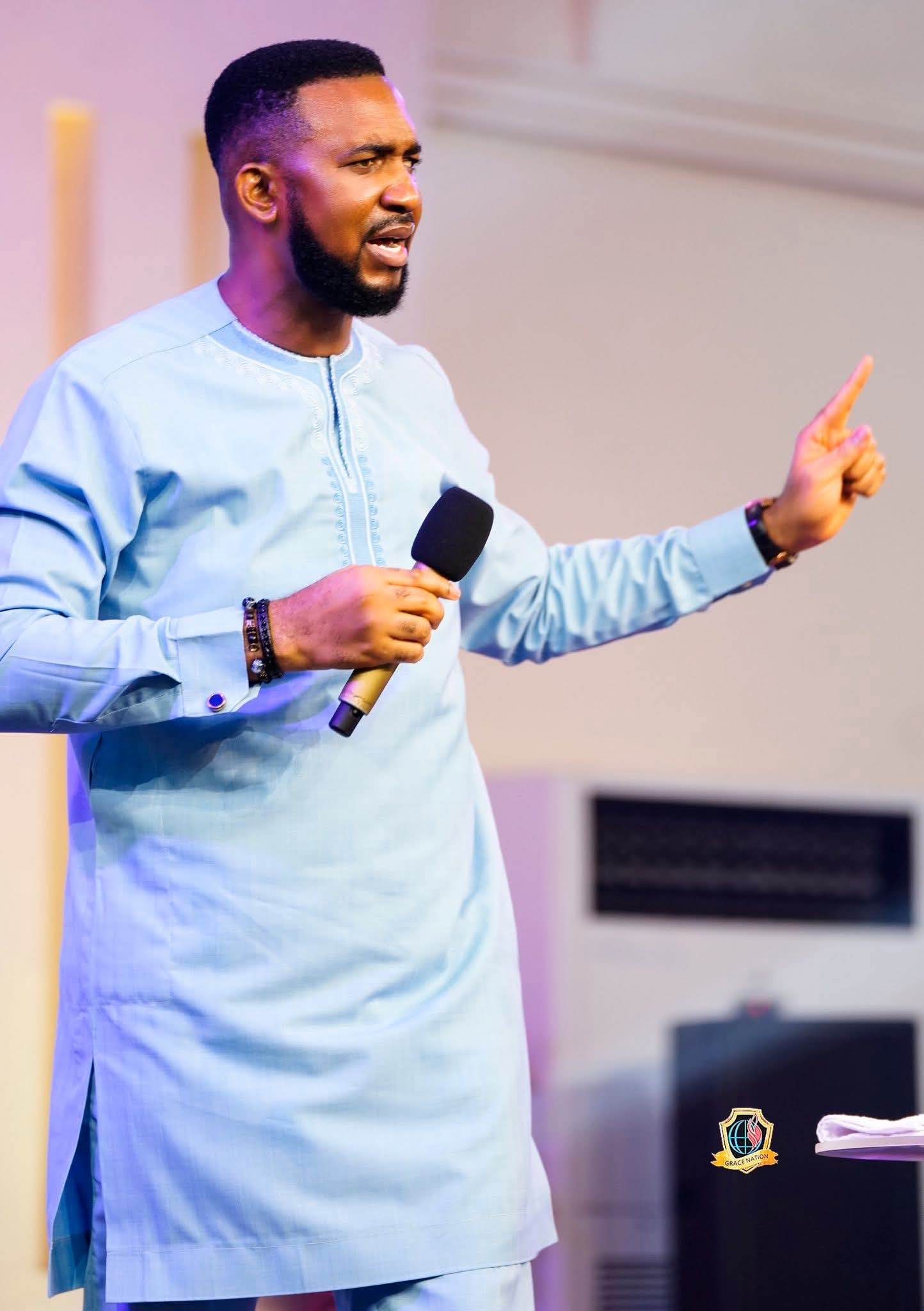
Spiritual Reality: Wicked People Are
Possessed by Wicked Spirits — Dr. Christian Okafor
…..“You don’t need to offend them before they attack you.”
…..“Your only true help comes from God.”
Demons are strategic and calculating. They detect threats quickly and position themselves to resist any power that may expose or overpower them.
According to the Generational Prophet and Senior Pastor of Grace Nation Global, Christian Okafor, spiritual intelligence operates both in light and in darkness—and believers must understand this reality.
Dr. Okafor delivered this message on Thursday, February 19, 2026, during the midweek Prophetic, Healing, Deliverance and Solutions Service (PHDS) held at the international headquarters of Grace Nation Worldwide in Ojodu Berger, Lagos, Nigeria.
The Operations of Demons
Teaching on the subject “Spiritual Reality” with the subtitle “Operations of Demons,” the Man of God explained that when demons possess individuals, their behavior changes. Such people may attack, bully, or resist those sent by God to help them, unknowingly rejecting divine assistance and prolonging their struggles.
“You don’t need to offend a demon before it attacks you,” he said. “What you carry is enough to provoke opposition. The greater your potential, the greater the battle.”
Dr. Okafor noted that many believers misinterpret battles as signs that God has abandoned them. However, he explained that some battles are permitted for growth, training, and divine glorification.
According to him, God may allow certain confrontations so that believers understand spiritual warfare and emerge stronger.
“Some battles are necessary,” he emphasized. “They push you into your turning point.”
He further stated that God does not respond to lies, blackmail, or bullying. He responds to His Word. Therefore, opposition is not proof of God’s absence, but often evidence of destiny at work.
The Weapon Against Demonic Attacks
Addressing solutions, Dr. Okafor described prayer as the strongest weapon against satanic operations.
“Prayer is the license that invites God into your battles,” he declared. “God does not intrude—He responds to invitation.”
According to the Apostle of Altars, understanding the principles and discipline of prayer enables believers to receive divine strategies for overcoming demonic resistance. Without prayer, he warned, spiritual help cannot be activated.
“You cannot receive help without God,” he concluded. “And you cannot engage God without prayer.”
Manifestations at the Service
The midweek gathering was marked by a strong move of the Spirit, with testimonies of deliverance, miracles, restoration, and solutions to various challenges presented before God. Several individuals reportedly committed their lives to Christ during the service.
celebrity radar - gossips
Kingdom Advancement: God Does Not Confirm Lies or Gossip — He Confirms His Word .” — Dr. Chris Okafor
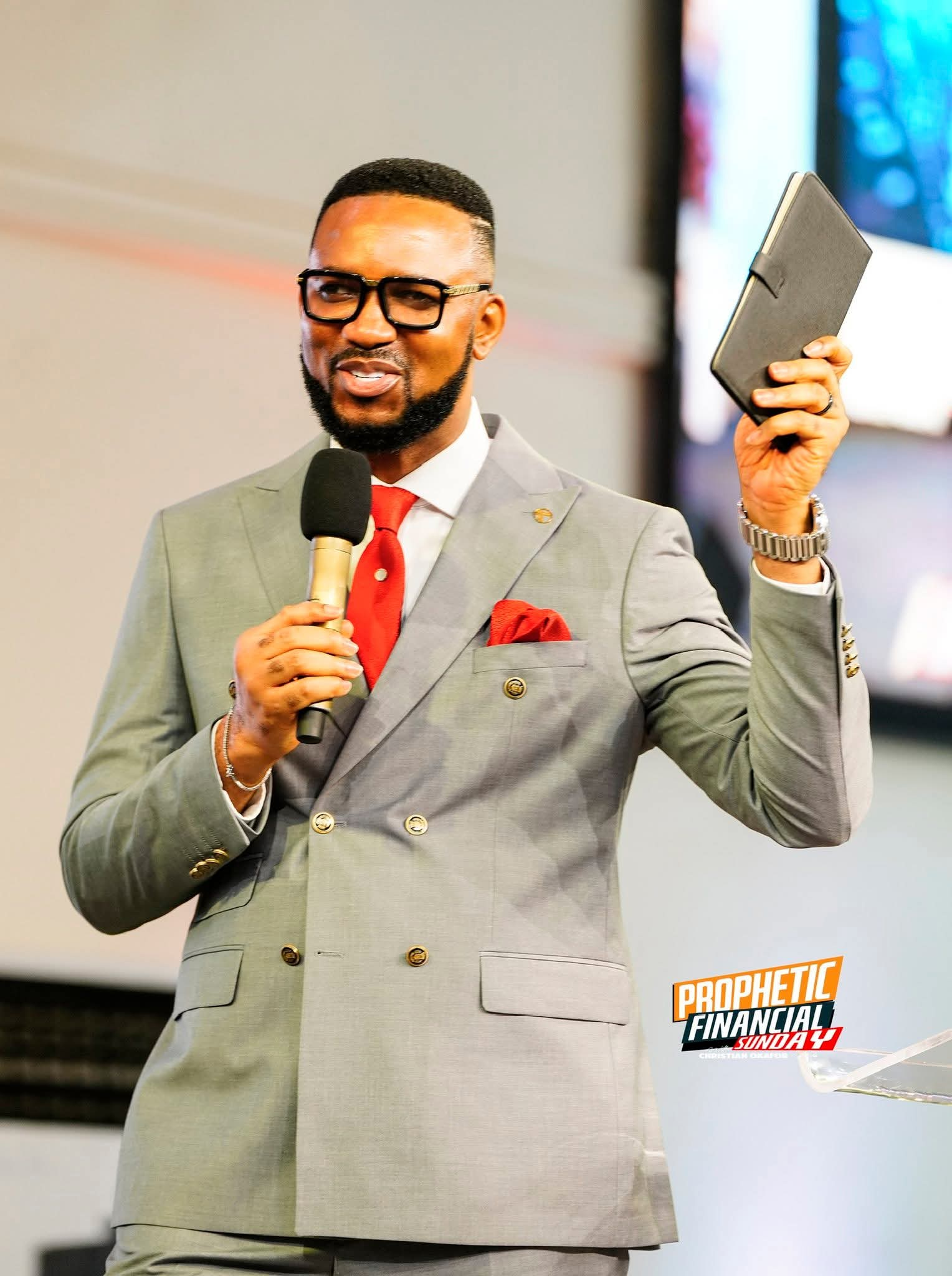
Kingdom Advancement: God Does Not Confirm Lies or Gossip—He Confirms His Word
“When Doing Business with God,
People’s Opinions Do Not Count.”
— Dr. Christian Okafor
The greatest investment any Christian can make is partnering with God. According to the Generational Prophet of God and Senior Pastor of Grace Nation Global, Christopher Okafor, when a believer commits to serving and advancing God’s kingdom, no barrier, lie, gossip, or blackmail can prevail against them.
This message was delivered during the Prophetic Financial Sunday Service held on February 15, 2026, at the international headquarters of Grace Nation Worldwide in Ojodu Berger, Lagos, Nigeria.
Doing Business with God
Teaching on the theme “Kingdom Advancement” with the subtitle “Doing Business with God,” Dr. Okafor emphasized that when a believer enters into covenant partnership with God, divine backing becomes inevitable.
“God is still in the business of covenant,” he declared. “When you make a covenant with Him, He honors the terms. When you win souls into the kingdom and remain committed to His work, He rewards you with what you could never achieve by your own strength.”
The Man of God stressed that God does not confirm lies, gossip, or negative narratives—He confirms His Word. Therefore, anyone genuinely committed to kingdom business should not be distracted by public opinion.
“No matter the blackmail or falsehood circulating around you, if you are focused on God’s assignment, those attacks will only strengthen you,” he stated.
He further noted that a believer’s understanding of God’s covenant determines their experience. “Your mentality about God’s covenant becomes your reality. When you truly know the God you serve, no devil can move you.”
Biblical Examples of Kingdom Partnership
Dr. Okafor cited several biblical figures who prospered through their partnership with God:
Abel
Abel served God with sincerity and offered his very best. His sacrifice pleased God, demonstrating that when a master is honored, he responds with favor.
David
David’s heart was fully devoted to God, and in return, God’s presence and favor rested upon him throughout his life.
Hannah
Hannah made a covenant with God, promising that if He blessed her with a child, she would dedicate him to His service. After fulfilling her vow, God rewarded her abundantly, blessing her with additional children.
Peter
Peter, a professional fisherman, surrendered his boat at Jesus’ request for kingdom work. Through that act of partnership and obedience, he experienced supernatural provision and divine elevation.
Conclusion
In closing, Dr. Okafor emphasized that one’s approach to God’s covenant determines the level of success and prosperity experienced. Commitment to kingdom advancement secures divine confirmation and supernatural results.
The Prophetic Financial Sunday Service was marked by prophetic declarations, deliverance, healings, miracles, restoration, and solutions to diverse cases presented before Elohim.
-

 celebrity radar - gossips6 months ago
celebrity radar - gossips6 months agoWhy Babangida’s Hilltop Home Became Nigeria’s Political “Mecca”
-

 society6 months ago
society6 months agoPower is a Loan, Not a Possession: The Sacred Duty of Planting People
-

 society5 months ago
society5 months agoReligion: Africa’s Oldest Weapon of Enslavement and the Forgotten Truth
-

 news6 months ago
news6 months agoTHE APPOINTMENT OF WASIU AYINDE BY THE FEDERAL GOVERNMENT AS AN AMBASSADOR SOUNDS EMBARRASSING

